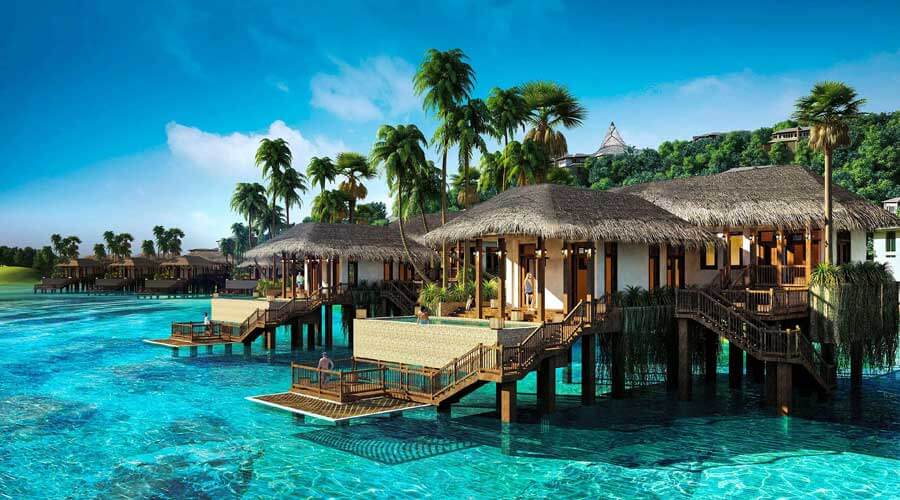Imagine waking up to the sound of howler monkeys or fantastic ocean views. Then, you step outside your private cabin into the breathtaking surroundings of a pristine rainforest or lush tropical gardens that smell of damp earth, and you can hear birds calling to each other in the trees. This is the experience of staying at an eco-lodge. This sustainable accommodation connects you with nature and supports communities.
Read on, and I’ll guide you through the world of eco-lodges, their benefits, criteria, top destinations, and how to choose the perfect eco-lodge for your next trip.
What is an Eco-Lodge?
I’ve long been an ecotourism enthusiast and enjoyed staying at many eco-lodges in different parts of the world.
I’ve always found the experience more fulfilling and uplifting than the traditional vacation experience. But what is an eco-lodge all about?
The definition of an eco-lodge is typically an accommodation that promotes minimal environmental impact, preserves natural habitats, and supports local communities.
These lodges are typically located in pristine natural settings and often offer a range of eco-friendly activities, such as bird watching, hiking trails, and cultural experiences.
Key Principles of Eco-Lodges
Eco-lodges operate under key principles that promote sustainability, respect for nature and local cultures, and educate guests about the environment. Here are some of the core principles:
- Minimize Impact: Eco-lodges aim to limit their environmental impact as much as possible. This can include reducing waste, minimizing energy use, and utilizing renewable energy. It may also involve environmentally-friendly cleaning products, organic food, and water conservation systems.
- Build with Nature: Construction of the lodges typically uses locally sourced, sustainable materials, and the design often blends seamlessly into the natural surroundings, causing minimal disruption to local ecosystems.
- Conserve Local Culture and Biodiversity: Eco-lodges aim to protect and promote the cultural and natural heritage of the region. This can involve incorporating local traditions and crafts into the guest experience, supporting biodiversity conservation initiatives, and helping to protect endangered species and habitats.
- Benefit Local Communities: Eco-lodges often actively support the local economy by employing local staff, sourcing food and materials from local suppliers, and investing in community development projects.
- Educate Guests: A significant part of the eco-lodge ethos is to educate guests about the surrounding environment and culture, sustainable living, and the importance of conservation. Activities may include guided nature walks, wildlife spotting, cultural workshops, and opportunities to participate in conservation work.
- Promote Sustainable Practices: Beyond their operations, eco-lodges encourage their guests to adopt sustainable practices during their stay and beyond. This can include advice on reducing energy use, recycling, responsible wildlife viewing, and respecting local customs and culture.
The Importance of Eco-Lodges in Ecotourism
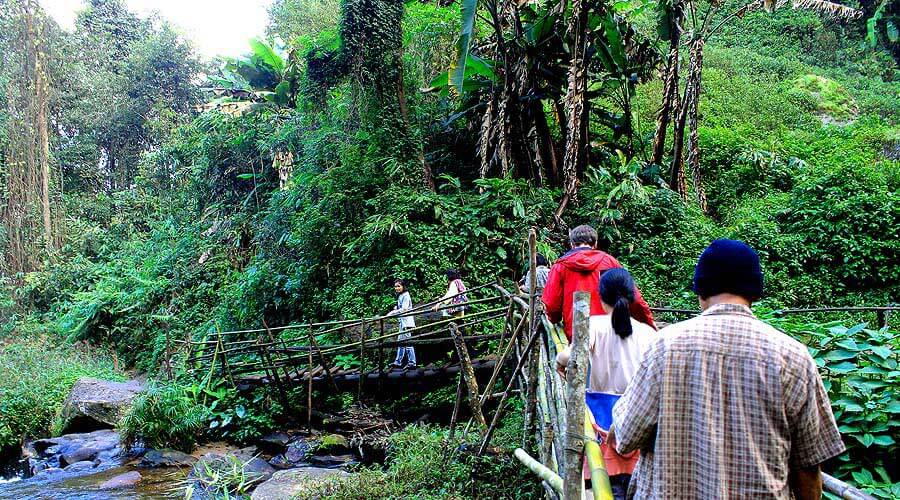
By choosing an eco-lodge, travelers can reduce their carbon footprint, contribute to preserving natural habitats, and immerse themselves in local cultures.
Located within biodiversity-rich areas, they operate with minimal impact, thus safeguarding fragile ecosystems.
By employing local staff, sourcing goods locally, and endorsing local activities, eco-lodges directly stimulate local economies.
They also preserve and celebrate local cultures, presenting tourists with an immersive, authentic experience.
Education is a key offering, with guests gaining insights into sustainability and environmental preservation, fostering a culture of responsible travel.
Eco-lodges are mindful of local resources, using renewable energy and implementing waste-reducing measures to alleviate strain on these assets.
They serve as models for sustainable practices, encouraging other businesses in the tourism sector to follow suit.
Lastly, the natural and peaceful environments of eco-lodges offer health benefits, including stress relief and improved air quality.
Hence, by opting for eco-lodges, travelers participate in sustainable tourism, contributing positively to visited communities and the environment while gaining a unique and enriching travel experience.
The Difference Between an Eco-Lodge and a Sustainable or Green Hotel
The terms eco-lodge, sustainable hotel, green hotel, and eco-hotel are often used interchangeably. Still, they have nuanced differences in their meaning and focus.
An eco-lodge is typically a small-scale facility in a remote natural setting emphasizing a solid connection to the local environment and community.
Eco-lodges are often deeply committed to environmental, socio-cultural, and economic sustainability.
They are designed to blend into their surroundings and are often built using local, sustainable materials.
They prioritize minimizing their impact on the environment fostering an appreciation for nature and local culture in their guests, and typically need the more sophisticated luxury of an eco-friendly hotel.
On the other hand, an eco-hotel is typically located in urban or suburban areas and can be of any size, from a small inn to a large resort.
An eco-hotel focuses on operating in an environmentally conscious way in all aspects of their business.
They implement energy-efficient practices, water conservation, waste reduction, and recycling programs.
An eco-hotel may often use renewable energy like solar panels, purchase locally produced food and goods, and use eco-friendly cleaning products.
The key difference lies in the extent of their immersion in nature and their commitment to preserving the local environment and culture.
Eco-lodges tend to be located directly within natural settings and put a significant focus on interacting with and preserving that setting.
Eco-hotels can be found in a variety of locations and put more of an emphasis on reducing the environmental impact of their daily operations rather than focusing on charitable and environmental projects.
However, both eco-hotels and eco-lodges aim to adhere to sustainability principles, and the best examples of both strive to positively impact their environment and the local community.
What Are the Criteria for an Eco-Lodge?
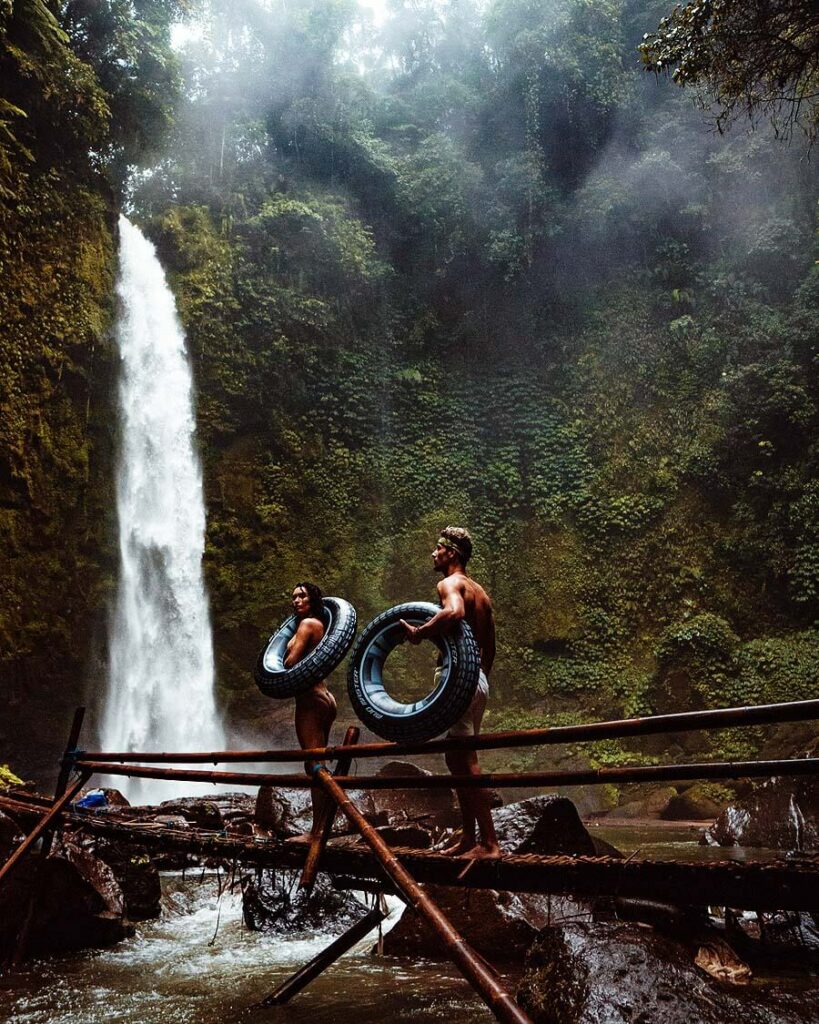
Sustainable Design
When considering an eco-lodge for your next vacation, examining its sustainable design elements is essential. These environmentally friendly features include:
Use Of Local Materials
Eco-lodges often use locally sourced materials for their construction, such as bamboo, reclaimed wood, or local stone.
In doing so, they support the local economy and reduce their carbon footprint as they don’t have to transport materials long distances.
Energy Efficiency / Renewable Energy
Eco-lodges utilize energy-efficient practices to minimize environmental impact.
This includes energy-efficient lighting, using renewable energy sources like solar panels or their own wind turbine, and deploying energy-saving appliances.
Passive solar design and energy management systems are also expected to optimize natural energy usage, promoting a sustainable stay for guests.
Waste Management and Recycling
Effective waste management and recycling practices are essential for eco-lodges.
They often implement composting programs, utilize biodegradable products, and recycle materials to minimize waste and reduce environmental impact.
Water Preservation
Water conservation is another vital aspect of sustainable design in eco-lodges.
They may employ rainwater harvesting systems, water-efficient fixtures, and greywater recycling systems to minimize water usage and protect local water sources.
Environmental Conservation
Eco-lodges focus on preserving the natural environment and often implement various conservation initiatives, such as:
Habitat Preservation
By protecting and preserving the surrounding natural environment, eco-lodges allow nature lovers to connect with the beauty and tranquillity of untouched habitats.
In addition, these lodges often incorporate private cabins and other accommodations that blend seamlessly with the landscape, creating a serene and immersive experience.
Wildlife Protection
Eco-lodges often take measures to protect the incredible wildlife accessible from their locations, such as implementing policies to reduce human-wildlife conflicts and offering guided local tours to educate guests about the importance of conservation.
Visitors might encounter sea turtles nesting on nearby beaches or observe native bird species in their natural habitat.
Biodiversity Conservation
Eco-lodges are crucial in conserving biodiversity by protecting ecosystems and promoting ecotourism practices.
In addition, they often work closely with local conservation organizations and participate in reforestation or habitat restoration projects.
Local Community Support
Support for the local community is a core principle of eco-lodges. Therefore, they often focus on providing the following:
Employment Opportunities
Eco-lodges create jobs for local residents, contributing to the economic well-being of the surrounding community.
From tour guides to kitchen staff, these lodges prioritize hiring local talent, fostering skill development, and providing stable income opportunities.
Cultural Preservation
By promoting local culture, traditions, and crafts, eco-lodges help preserve the unique heritage of their destinations.
Guests can enjoy authentic cultural experiences, such as coffee tours, traditional dance performances, or visits to artisan workshops by local people.
Community Development Projects
Eco-lodges often participate in community development projects, such as building schools, supporting healthcare initiatives, or improving infrastructure.
These efforts contribute to the well-being of local residents and create a lasting positive impact.
What Is The Difference Between An Eco-Lodge And An Eco-Resort?
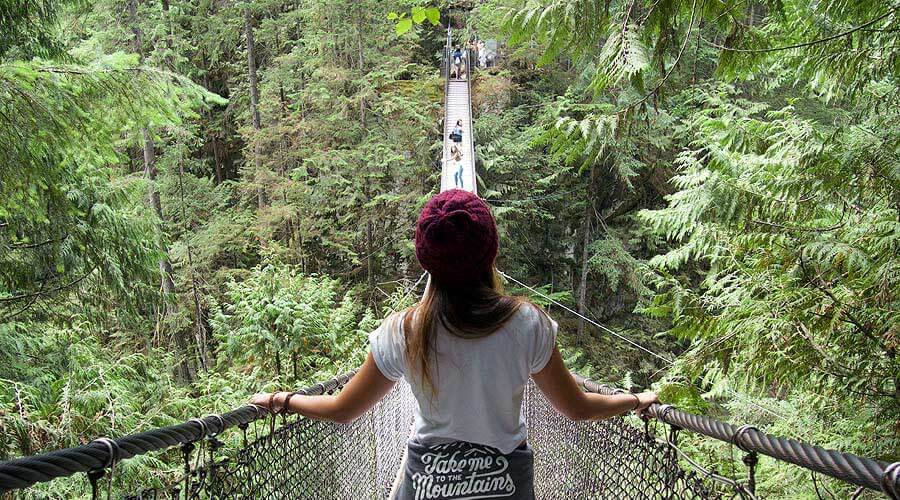
While similar in their pursuit of environmentally conscious practices, an eco-lodge and an eco-resort diverge significantly in their scope, size, amenities, and overall experience.
An eco-lodge is typically a smaller-scale accommodation that tends to be located in or near pristine natural environments.
The main focus of an eco-lodge is on minimizing environmental impact and fostering a deeper understanding and appreciation of its surroundings’ natural and cultural heritage among its guests.
The structures of an eco-lodge are often built with locally sourced, sustainable materials and blend seamlessly with the surrounding landscape.
Amenities may be simpler and more rustic, encouraging guests to engage more directly with the outdoors.
Eco-lodges may also strongly emphasize activities such as birdwatching, hiking, and local cultural experiences and often support indigenous communities through direct employment and initiatives.
On the other hand, an eco-resort is usually larger and offers a broader range of amenities and services, aiming to provide a luxurious experience while adhering to sustainability principles.
These eco-resorts often incorporate renewable energy sources, water and waste management systems, environmentally friendly toiletries, and products.
While they also focus on minimizing their environmental impact, the scale and variety of activities at an eco-resort can be broader, potentially including spa services, fine dining, or water sports, all implemented with sustainability in mind. For example, recent years have seen an increase in eco-yoga retreats with a focus on wellness and meditation.
Eco-resorts may also be located in a variety of settings, from beachfronts to mountains, and often aim to balance environmental responsibility with a high level of comfort and luxury.
While eco-lodges and eco-resorts prioritize sustainability, their differences lie primarily in scale, setting, level of sustainable luxury villas, and the type of guest experience they aim to provide.
Personal Benefits of Staying at an Eco-Lodge
Staying at an eco-lodge provides numerous personal benefits, including:
Educational and Unique Travel Experience
Eco-lodges offer a unique travel experience where guests learn about environmental conservation, local culture, and sustainable living practices.
Increased Awareness of Sustainable Living and Environmental Conservation
Staying at an eco-lodge can inspire guests to adopt more sustainable habits in their daily lives and increase their appreciation for the natural world.
Cultural Immersion and Involvement in Conservation
Guests can forge meaningful connections with their destination and local people by immersing themselves in local culture and participating in conservation efforts.
Tips for Choosing the Right Eco-Lodge

Research
Before selecting an eco-lodge, conducting thorough research is essential to ensure you’re making a responsible choice. Consider the following factors when evaluating potential lodges:
- Verify certifications and sustainability claims: Look for lodges certified by reputable organizations such as Green Globe, the Rainforest Alliance, or the Global Sustainable Tourism Council (GSTC).
- Environmental impact: Investigate the lodge’s efforts to decrease water and energy usage, its carbon footprint, and the amount of waste produced.
- Social responsibility: Consider the lodge’s involvement in community development projects and cultural preservation initiatives.
- Economic sustainability: Determine if the lodge supports local businesses and provides employment opportunities for the surrounding community.
- Read reviews and testimonials: Browse online reviews and testimonials from past guests to understand the lodge’s overall commitment to sustainability and guest satisfaction.
Location
The location of an eco-lodge is crucial for both convenience and environmental impact. Keep the following considerations in mind:
- Proximity to natural attractions: Choose a lodge near the main natural attractions you want to visit, whether a national park, a beautiful beach, or a stunning view off the beaten path.
- Accessibility and transportation: Consider the ease of reaching the lodge and the available transportation options. Lodges with good accessibility can help minimize travel impact while maximizing your time to enjoy your destination.
Amenities
When selecting an eco-lodge, it’s essential to consider the on-site amenities and experiences they offer.
Remember that eco-lodges often prioritize sustainability over luxury, so some accommodations may be more rustic and minimal than expected. Look for the following:
- Eco-friendly accommodations and services: Ensure the lodge provides eco-friendly options such as organic gardens, solar power, and composting toilets.
- On-site activities and experiences: Investigate the experiences and activities available at the lodge, such as guided night walks, horseback riding, or wildlife encounters. These immersive experiences help connect you with the local environment and culture.
Certification Programs
Numerous reputable certification programs can help you gauge the eco-friendliness of a lodge. Some of the most respected programs include:
- Green Globe: A global certification program for ecotourism focusing on environmental, social, and economic performance.
- Rainforest Alliance: A certification that promotes responsible tourism practices in rainforest regions.
- Travelife: An international certification system promoting sustainable practices in the various tourism industry suppliers.
- LEED (Leadership in Energy and Environmental Design): Globally recognized green building certification system.
- EarthCheck: Leading travel and tourism industry’s environmental management and certification program.
- Green Key: An eco-label awarded to eco-hotels and other establishments that meet specific environmental criteria.
- Green Seal: A certification that verifies the ecological responsibility of products and services.
- BREEAM (Building Research Establishment Environmental Assessment Method): A leading sustainability assessment method for buildings.
- GSTC (Global Sustainable Tourism Council): A certification that promotes global sustainable tourism standards.
Best Eco-Lodge Destinations Around the World
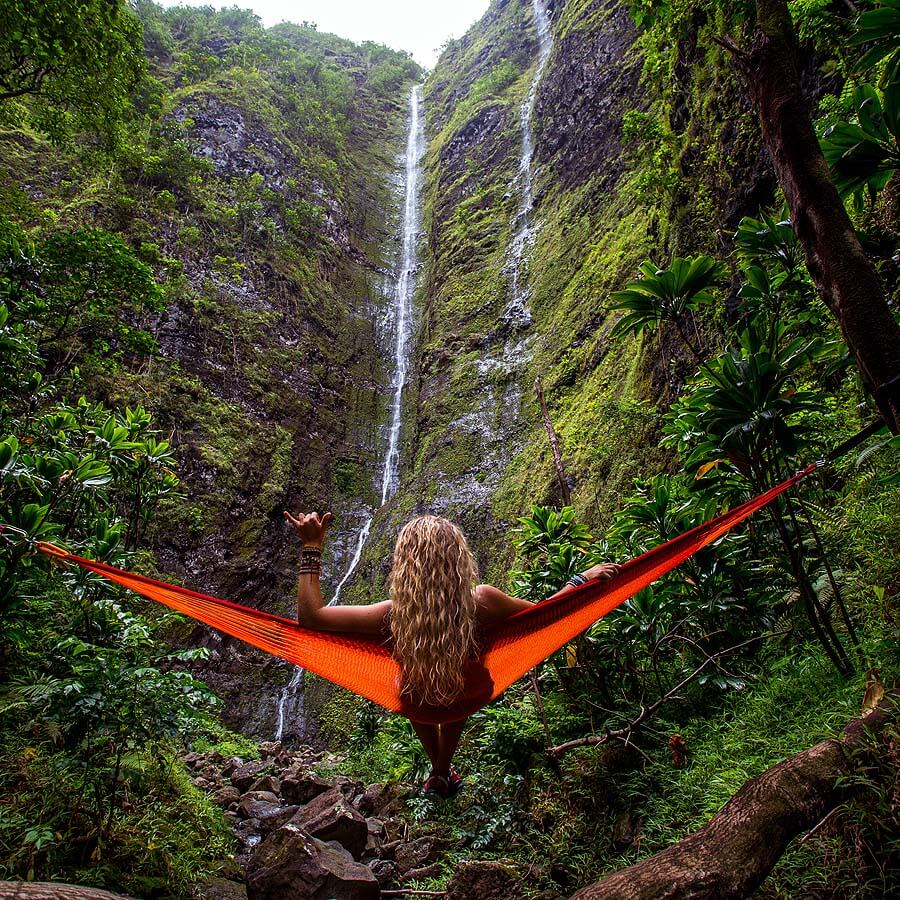
Globally, many regions are ideal for eco-lodges due to their unique natural environments and commitment to sustainability.
The main regions include North America, Hawaii, and Alaska, where stunning landscapes and natural resources are abundant.
Tebay Lodge, an eco-lodge nestled in Alaska’s Wrangell-St. Elias National Park offers cozy accommodations in homesteads and yurts, complete with amenities and a hand-crafted cedar sauna, serving as an inviting haven for those braving Alaska’s winter.
Central and South America has rainforests and diverse ecosystems, making it a perfect location for eco-lodges. Costa Rica has probably one of the densest concentrations of eco-lodges of any region.
Lapa Rios Lodge in Costa Rica, set within a private nature reserve, underscores sustainability and conservation, actively contributing to preserving the Osa Peninsula.
In the heart of the Amazon rainforest, Inkaterra Reserva Amazonica in Peru offers immersion into the natural environment while championing conservation and sustainability.
Europe boasts numerous eco-lodges that exploit the continent’s diverse climates and landscapes.
Whitepod in Switzerland, for instance, offers eco-luxury accommodations in the Swiss Alps, using geodesic domes that require minimal energy.
With its unique igloo accommodations, Finland’s Kakslauttanen provides sustainable luxury in a fantastic Arctic setting.
Asia and the Pacific also provide remarkable eco-lodges, courtesy of their rich biodiversity and commitment to sustainable tourism.
Topas Eco-lodge in Vietnam is situated on a beautiful hillside in the mountains of Hoang Lien National Park, near Sapa in Northern Vietnam.
Daintree Wilderness Lodge is an award-winning eco-lodge located in a UNESCO world heritage site in Australia’s ancient rainforest featuring unique treehouse-style accommodations.
Located in the heart of the Daintree Rainforest in Queensland, Australia, this Eco-lodge is a globally recognized sustainable tourism destination that offers a unique and tranquil eco-friendly retreat.
Africa, known for its incredible wildlife and vast wilderness areas, hosts eco-lodges like Campi ya Kanzi in Kenya, a community-led luxury safari camp experience focusing on environmental sustainability and local empowerment, located at the foot of Mount Kilimanjaro.
Near Victoria Falls, Zambia’s Tongabezi Lodge provides eco-friendly accommodations and is dedicated to responsible tourism and supporting the local community.
These regions are ideal for eco-lodges due to their unique environments, diverse ecosystems, and commitment to maintaining natural beauty through sustainable practices.
Eco-Lodge: Frequently Asked Questions
How Does An Eco-Lodge Contribute To Ecotourism?
Eco-lodges contribute to ecotourism by minimizing the environmental and cultural impact of tourism.
They often use renewable energy, conserve water, reduce waste, and support communities economically. This way, they provide tourists with a responsible choice of accommodation.
Is Staying At An Eco-Lodge Expensive?
The cost of staying at an eco-lodge can vary greatly, depending on factors such as location, amenities, and the level of luxury.
Some eco-lodges are affordable, while others cater to the luxury market. The cost often reflects the investment made in sustainable practices and community engagement.
How Can I Verify If An Eco-Lodge Is Genuinely Eco-Friendly?
You can check if an eco-lodge has been certified by recognized sustainability certification programs (see above).
Also, you can research their sustainability practices, involvement with the local community, and how they manage their waste and resources.
Can I Find Eco-Lodges Worldwide?
Yes, eco-lodges, from tropical rainforests and deserts to mountains and coastal regions, can be found worldwide.
They are widespread in areas known for their natural beauty and biodiversity.
Are Eco-Lodges Suitable For Family Vacations?
Absolutely! Some of the best eco-lodges offer family-friendly activities and accommodations.
However, it’s always a good idea to check with the specific lodge regarding their amenities and facilities for children.
What Kind Of Activities Can I Expect At An Eco-Lodge?
This depends on the location of the lodge. Activities can range from nature hikes to bird watching and wildlife spotting. Or even discovering marine life with scuba diving experiences.
Cultural experiences are often a feature where you can see local crafts or attend cooking classes and community visits. Some also offer wellness activities like eco-yoga retreats and meditation.
What Should I Pack For An Eco-Lodge Stay?
Consider packing light and taking only essential items. Eco-friendly toiletries, reusable water bottles, and clothing suitable for outdoor activities are usually good choices.
Also, remember to check the weather forecast and bring clothing appropriate for the local climate.
Can I Book An Eco-Lodge For A Corporate Event Or Retreat?
Plenty of eco-lodges cater to corporate events and retreats, offering meeting spaces and team-building activities.
However, you should contact the lodge directly to find out more about their offerings and capacity.
Final Thoughts
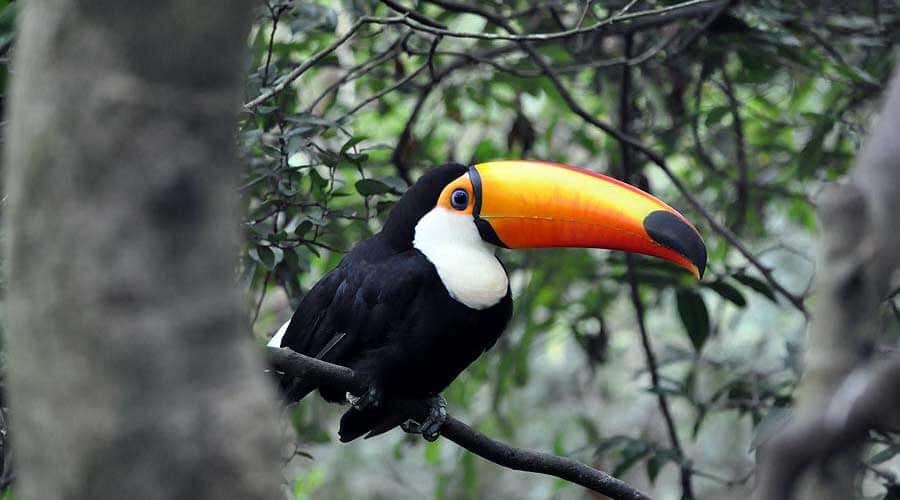
Over the years, I’ve found that eco-lodges offer an incredible opportunity for travelers to explore the world’s natural wonders while minimizing their environmental impact.
Not only do eco-lodges provide a unique and memorable travel experience, but they also contribute to preserving our planet’s delicate ecosystems and supporting communities.
By carefully researching potential lodges, considering location and amenities, and verifying their commitment to sustainability through certification programs, you can make an informed decision that aligns with your values.
On your next adventure, even if you stay in an urban eco-hotel, why not choose an eco-lodge and immerse yourself in the beauty and richness of our world’s diverse landscapes and cultures.

